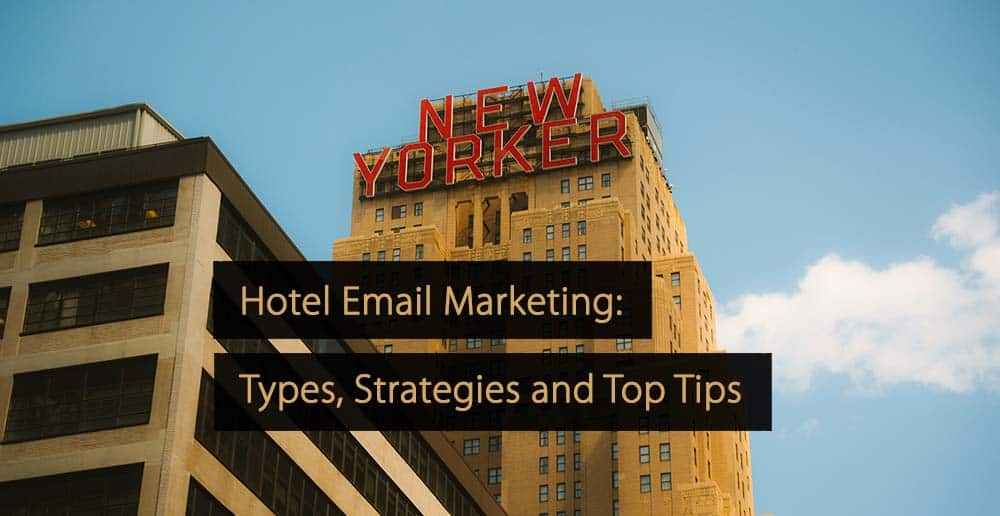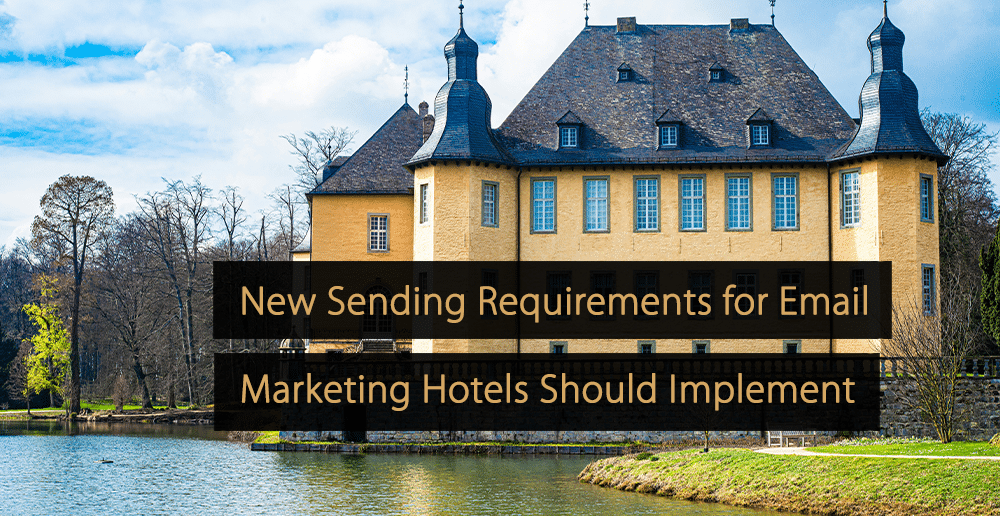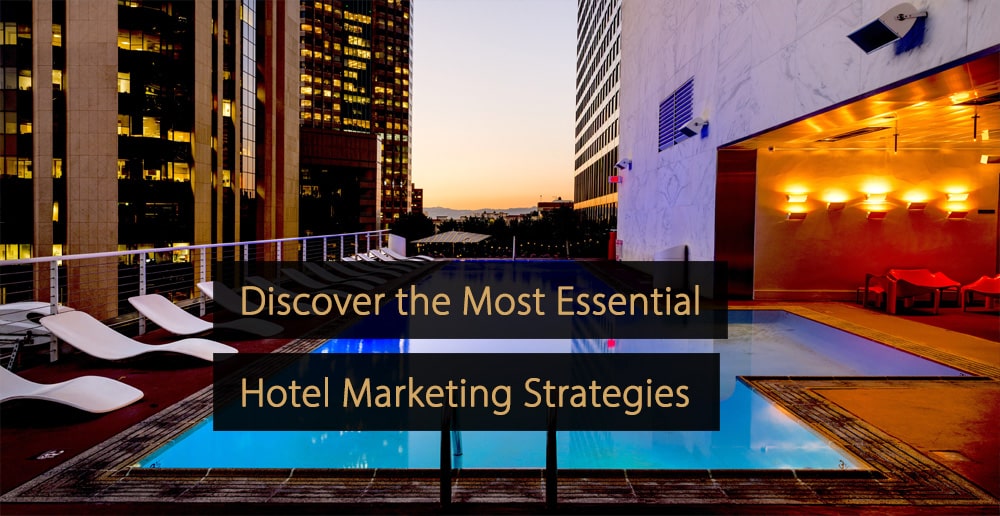Question for Our Hotel Marketing Expert Panel
How can the “cost of acquisition” be calculated? Should it be our main focus? Should it be added to direct marketing costs in comparison to OTA distribution costs? (Question from Matthias Dybing)
Industry Expert Panel
Our Industry Expert Panel exists out of professionals within the hospitality & travel Industry. They have comprehensive and detailed knowledge, experience in practice or management and are forward-thinking. They are answering questions about the state of the industry. They share their insights on topics like revenue management, marketing, operations, technology and discuss the latest trends.
Our Marketing Expert Panel
- Thom de Graaf – Online Marketing Specialist, Orange Hotel Marketing
- Adele Gutman – Culture and Guest Experience Expert, Hospitality Reputation Marketing Podcast
- Stephanie Smith – Founder, Cogwheel Marketing
- Susanne Williams – Client Performance Director, Alliants
- Cory Falter – Partner and Visionary at Lure Agency
- Thomas Dieben – Founder, Becurious
- Nicole Sideris – Founder & Prinicipal Consultant, X Hospitality
- Jacopo Focaroli – CEO & Founder, The Host
- Moriya Rockman – Chief of Marketing, Smiling House Luxury Global
- Max Starkov – Adjunct Professor Hospitality Technology, New York University
- Luminita Mardale – Director Of Marketing And Business Development, Vienna House
- Ask Our Panel a Question
- Join Our Expert Panel
“The monetary cost of a booking doesn’t capture its full value. This raises the question of whether a booking made through an OTA holds the same value as a direct booking. Direct bookings offer added advantages, such as personal interaction with guests, the ability to capture their details in your system, and insights into their behaviour on your website.
Furthermore, direct bookings enhance your brand visibility and provide opportunities to build and strengthen guest relationships.”
“Direct bookings are important for many reasons, not limited to lower acquisition costs. Owning a direct relationship with your customer is vital to nurturing the lifetime value of your business along with the lifetime value of each customer. OTA fees have risen over the years and there is no legal limitation for commission rates increasing in the future. If hotels become completely reliant on outside sources to deliver our bookings, who is to say that commissions won’t double per booking and that OTAs won’t take that money to continue to out-advertise us?
My top tips would be:
- Teach your team to sparkle warm hospitality on Every Guest, Every Time. That way, they not only come back again, but also enthusiastically recommend, refer, and write five-star reviews to help you attract far more guests than paid marketing alone. Aim for nine out of 10 reviews to be five-star.
- Have a great website and booking engine that really focuses on giving your guests convenient, rich information in an easy-to-see way. OTAs are not as expressive of the details that guests want to know. This gives hotels, especially independent hotels an opportunity to give guests a more guest-centric and personalised experience.
- When guests love you, they are more open to giving you their email and booking directly with you. What can offer higher conversions than well-crafted emails to your fans! Offer them something special as “preferred members” to thank them for their business so you have a competitive advantage over the OTAs. They give exclusive offers to their fans, so you should as well.
If your advertising states you offer the best deals for members, don’t make your guests suffer to get a matched rate. This happens every day! A screenshot should be enough to prove it’s the same dates, room type and conditions so the front desk/reservations team should be empowered to accommodate valid requests. In other words, don’t make it difficult or punitive for customers to book direct.”
“I have definitely seen scenarios where it costs more to acquire a direct booking via metasearch than let the OTA win that particular booking. I do value the long-term value of a guest, but even that is difficult and tedious to calculate.
I also suggest you consistently calculate your ROAS vs. ROI, ie Revenue/Cost vs. (Revenue-Cost)/Cost. I also think it is hard to rely solely on ROAS/ROI/COA as it depends on where in the funnel the campaign is focused, the goal of the campaign, and who you are targeting. And sometimes, OTAs can be your friend!”
“Cost of acquisition should be part of the KPIs reviewed when understanding marketing performance and where that cost sits is a hot topic. It is ultimately a marketing cost. It’s not an either/or question; the cost of acquiring a booking is one thing, but to control your OTA costs and high commission channels, the cost of acquiring a guest sits firmly in front of the cost of acquiring a booking. Brand, target audience, reach, loyalty and total distribution mix all matter. However, consider these points to calculate the cost of acquisition.
- Direct Marketing Costs: This includes expenses related to your hotel’s direct marketing efforts, such as website development and maintenance, search engine optimisation (SEO), pay-per-click (PPC) advertising, social media marketing, email marketing campaigns, content creation, and any other direct marketing initiatives.
- OTA Commission Fees: For OTA bookings, calculate the commission or fees charged by the OTA for each booking. This information is typically provided in your agreement with the OTA.
- OTA Advertising Costs: Some OTAs offer advertising opportunities to increase visibility and bookings. If you choose to advertise on OTAs, include the associated costs in the cost of acquisition.
- Ancillary: Consider any additional costs associated with each booking channel, such as credit card processing fees, booking engine fees, or any other transactional expenses specific to the channel.
Once you have calculated the cost of acquisition for each booking channel, you can compare the profitability and efficiency of each channel.”
“As someone who is focusing on the B2B side of hospitality, I’ll let my colleagues weigh in on the specifics for calculations, but I strongly suggest we look beyond the simple math of one transaction vs. the lifetime customer value of the guest.
Here are some things to consider beyond the obvious numbers that could impact the bottom line:
- What are the long-term (revenue) effects of dependence on third parties and OTAs for ALL segments of business?
- Who owns the customer and how does that impact LCV?
- What’s the impact of a poor TripAdvisor or Yelp review the hotel received from a guest who received a horrible experience from third-party customer support?
- What’s the effect on your bottom line when you don’t have the ability to build a personal relationship with your guests that keeps them from ever considering your competitors?
As with B2B, I think it’s essential for hoteliers to view each and every guest as a potential revenue generator that transcends a single booking transaction through years of repeat visits and referrals.”
“At our agency, we are dedicated to helping hotels and hotel groups achieve greater independence from Online Travel Agencies (OTA) by optimising their direct bookings. While discussions about channelling direct bookings versus OTA bookings have been ongoing in the hospitality industry, it is important to shift our attention to the ‘cost of acquisition’ as a key factor.
In addition to saving on commissions, establishing direct relationships with guests holds significant commercial value. The foundation for achieving this lies in developing a robust digital marketing strategy. Begin by evaluating your current distribution mix and the proportion of revenue derived from direct bookings. Analyse the geographic origins of your guests and determine how they discovered your hotel.
Formulate a clear and compelling strategy that showcases the unique aspects of your property and communicates the value of your offerings. Highlighting what sets your hotel apart will resonate with potential guests and encourage direct bookings.
Calculating the cost of acquisition involves aggregating all relevant costs associated with acquiring guests and dividing it by the number of guests acquired. To gain deeper insights, savvy hoteliers often separate the costs by reservation source. This detailed analysis allows for a comprehensive evaluation of the effectiveness of various acquisition channels.
By prioritising the cost of acquisition and adopting a strategic approach to direct marketing, hotels can reduce dependency on OTAs, enhance profitability, and cultivate lasting relationships with guests.”
“The best performance indicator to monitor is the Net RevPAR after deducting the acquisition costs (marketing and distribution).”
“Shifting the focus to the “cost of acquisition” sounds a bit like the elephant in the room, that’s a great question when it comes to evaluating expenses like marketing costs, distribution fees, commissions, and operational expenses. The cost of acquisition allows for a comprehensive evaluation of the financial impact of each booking source. By including that, hotels can gain a clearer understanding of the return on investment (ROI) for each distribution channel. By considering this cost, hotels can optimise resource allocation and distribution strategies.
Furthermore, evaluating the cost of acquisition assists us in the analysing long-term value of customers acquired through different channels. Understanding the lifetime value and repeat booking potential helps hotels maximise revenue and profitability, and in short, hotels can make more informed decisions, optimise their distribution strategies, and maximise profitability.”
“There is nothing better than a direct channel booking. In the ever-evolving travel market of 2023, staying competitive means crafting a compelling narrative and leveraging strategic marketing techniques to connect with your target audience. While word of mouth remains a potent and cost-effective tool, it’s essential to adapt to the digital landscape by partnering with online travel agencies (OTAs). These trusted platforms have garnered the trust of global travelers and can amplify your brand’s reach.
Embrace the opportunity to collaborate with OTAs, allowing them to spearhead your marketing initiatives and guide potential guests straight to your doorstep. By sharing commissions for successful bookings, you’ll harness the collective strength of OTA partnerships to enhance awareness and drive bookings. Embrace the synergy between direct bookings and OTA collaborations to thrive in the competitive travel industry of today.
If you want to extend direct bookings, be prepared to invest a lot of money into strategic initiatives that generate widespread awareness. To truly differentiate yourself from competitors, maintain an active and engaging presence across various social media platforms, specialized magazines, and collaborate with influential travel content creators.
In some cases, leverage local mass media channels such as newspapers, television, and radio, tailoring your approach to suit your target market and segmentation. Remember, effective marketing and branding is crucial for your business. Craft a compelling narrative & story with authenticity, enabling potential guests to connect with your unique story and choose your services and products over others. By strategically investing in these efforts, you’ll enhance your visibility, leaving a lasting impression on prospective guests and boosting your direct bookings.”
“The cost of acquisition should become one of the main benchmarks for the health of your hotel’s distribution and revenue management practices. Is the direct channel cheaper than the OTAs?
We tracked the cost of direct online distribution over the course of 20 years across our 5,000+ primarily independent hotel clients. You know what? The average cost has stayed consistently in the range of 4.25% – 4.5%, including website cost amortized over 36 months, website maintenance, hosting, analytics, digital marketing (Content Marketing, SEO, metasearch, online media, social media, email marketing, CRM marketing, omnichannel marketing campaigns, etc.), consulting fees. Compare this to OTA commissions of 18%-25% plus increased visibility commission add-ons, OTA loyalty member discounts, etc.
The caveat? You have to invest adequately in digital marketing and technology and maintain a very comprehensive, year-round digital strategy, not just embark on occasional, one-off initiatives. Your digital marketing strategy has to aim to engage, acquire and retain travel consumers throughout the Digital Customer Journey and its five phases: Dreaming, Planning, Booking, Experiencing and Retention/Sharing.
In my view, the cost of acquisition in the direct online channel is only a small part of the equation. “Ownership” of the customer and their first-party data, and increasing repeat business are equally important. The hotels “own” their direct online customers – first-party data, preferences, pre-, during and post-engagements and communications, which enable them to market efficiently in this era of increased privacy regulations, and significantly increase repeat business via CRM and guest appreciation programs, marketing automation, drip campaigns, etc.”
“Guest acquisition costs are rising, and the consequences for hotels are obvious. Direct bookings represent the lowest costs associated with acquiring new business and are on average 12.5% more profitable than a booking made through an OTA. When your guests don’t book direct, you pay high commission rates and hefty transaction fees that influence the amount of revenue you secure.”
Ask a Question & Join Our Expert Panel
Would you like a question to be answered by our Industry Expert Panel? Or would you like to join our community of experts and share your experience, insights, and knowledge with fellow industry professionals? Via the buttons below you can submit a question or submit a request to become part of our expert panel.
More Tips to Grow Your Business
Revfine.com is the leading knowledge platform for the hospitality and travel industry. Professionals use our insights, strategies, and actionable tips to get inspired, optimize revenue, innovate processes, and improve customer experience.Explore expert advice on management, marketing, revenue management, operations, software, and technology in our dedicated Hotel, Hospitality, and Travel & Tourism categories.


















Leave A Comment